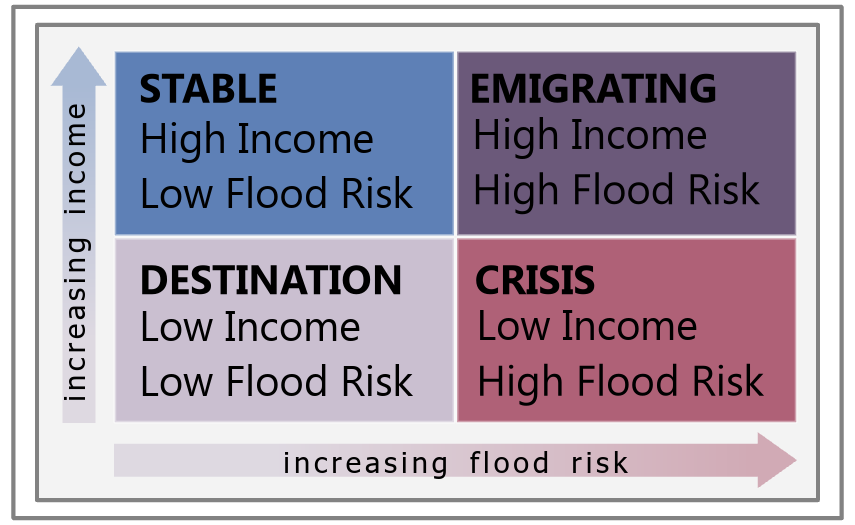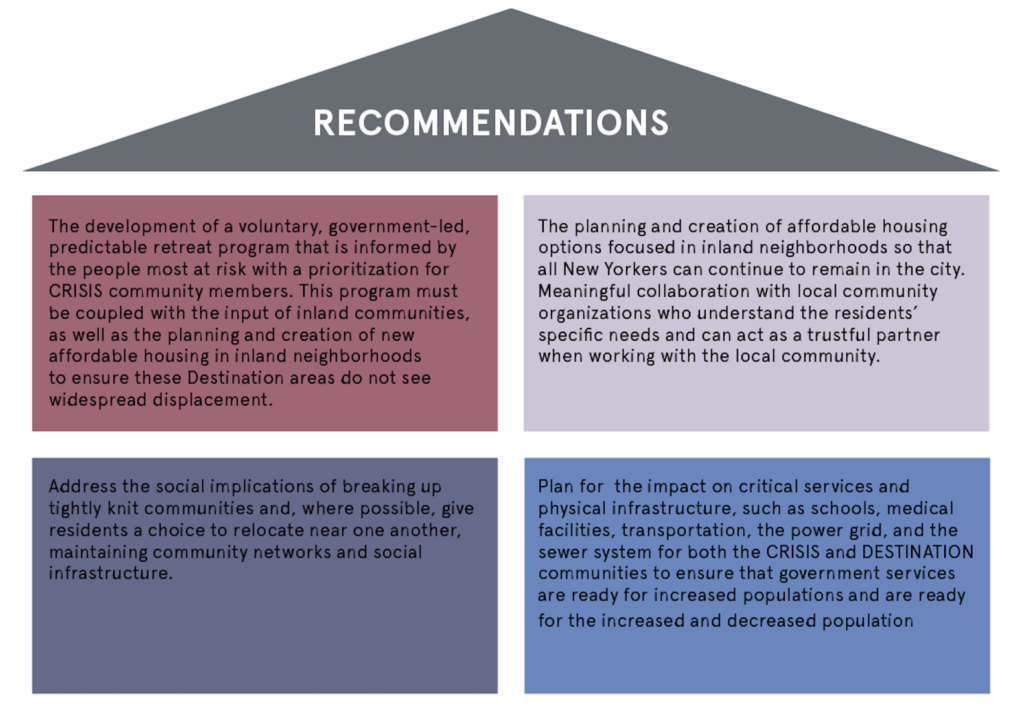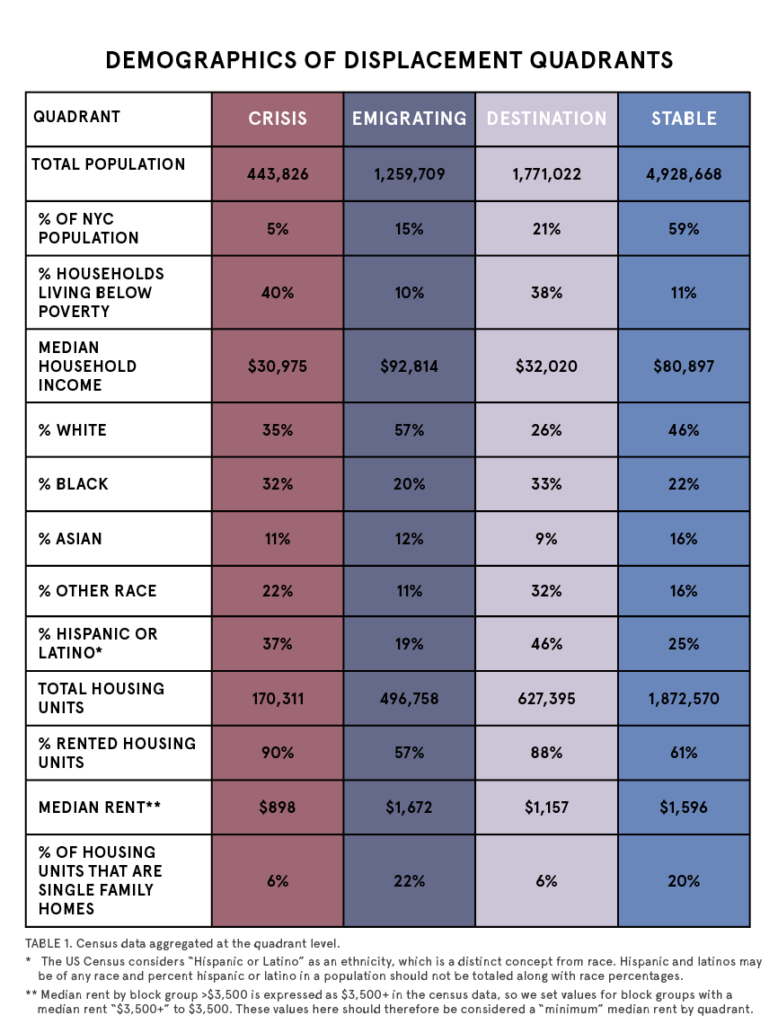Climate Displacement in NYC: Making Space for our Neighbors
OVER 40 PERCENT OF NEW YORK CITY’S POPULATION LIVES IN AREAS THAT, WITHOUT INTERVENTION, FACE HIGH RISK FOR CLIMATE DISPLACEMENT
Rebuild by Design calls for “making space for neighbors” and the development of a voluntary, government led, predictable buyout program informed by the communities most at risk.
As severe coastal flooding impacts low-lying communities, those who have financial means may move to higher ground, further gentrifying inland communities, and displacing long-term, lower-income residents. Rebuild by Design collaborated with Milliman to study the areas across New York City that could be impacted by coastal flooding in 2050 to better understand the economic and demographic makeup of these communities.
Climate displacement — the relocation of peoples as a result of sudden and/or slow-onset climate and weather-related disasters — causes upheaval for those who stay and those who leave. Those who leave can have difficulty finding acceptable housing and employment. Those who remain after a disaster, as a result of an eroding tax base and less proximity to neighbors, can face diminished access to critical services, including police and fire, education, and healthcare.
NYC CLIMATE DISPLACEMENT MAP

2050 floodplain data provided by the Mayor's Office of Climate and Environmental Justice (MOCEJ) on behalf of CUNY Institute for Sustainable Cities (CISC) and the New York Panel on Climate Change (NPCC); Census Block Group boundaries provided by the U.S. Census Bureau
FINDINGS
1.7 Million New Yorkers
reside within or directly adjacent to New York City’s estimated 2050 100-year floodplain.
400,000 New Yorkers
reside in CRISIS areas which are low-lying and low-income with high future flood risk.
21% of the population of NYC
reside in DESTINATION areas which is at risk of secondary displacement as CRISIS and EMIGRATING communities look for new places to live.
Over 40% of New Yorkers
will be at risk of displacement without comprehensive and proactive government planning, the EMIGRATING population could add additional pressures to limited housing stock in inland neighborhoods with lower rents (DESTINATION).
Over one third of households
in DESTINATION areas live below the poverty level and are at the highest risk for displacement.
This data can help
Local and State governments to anticipate and plan for population shifts to give all people across the economic spectrum the best options for adapting to a future climate.

